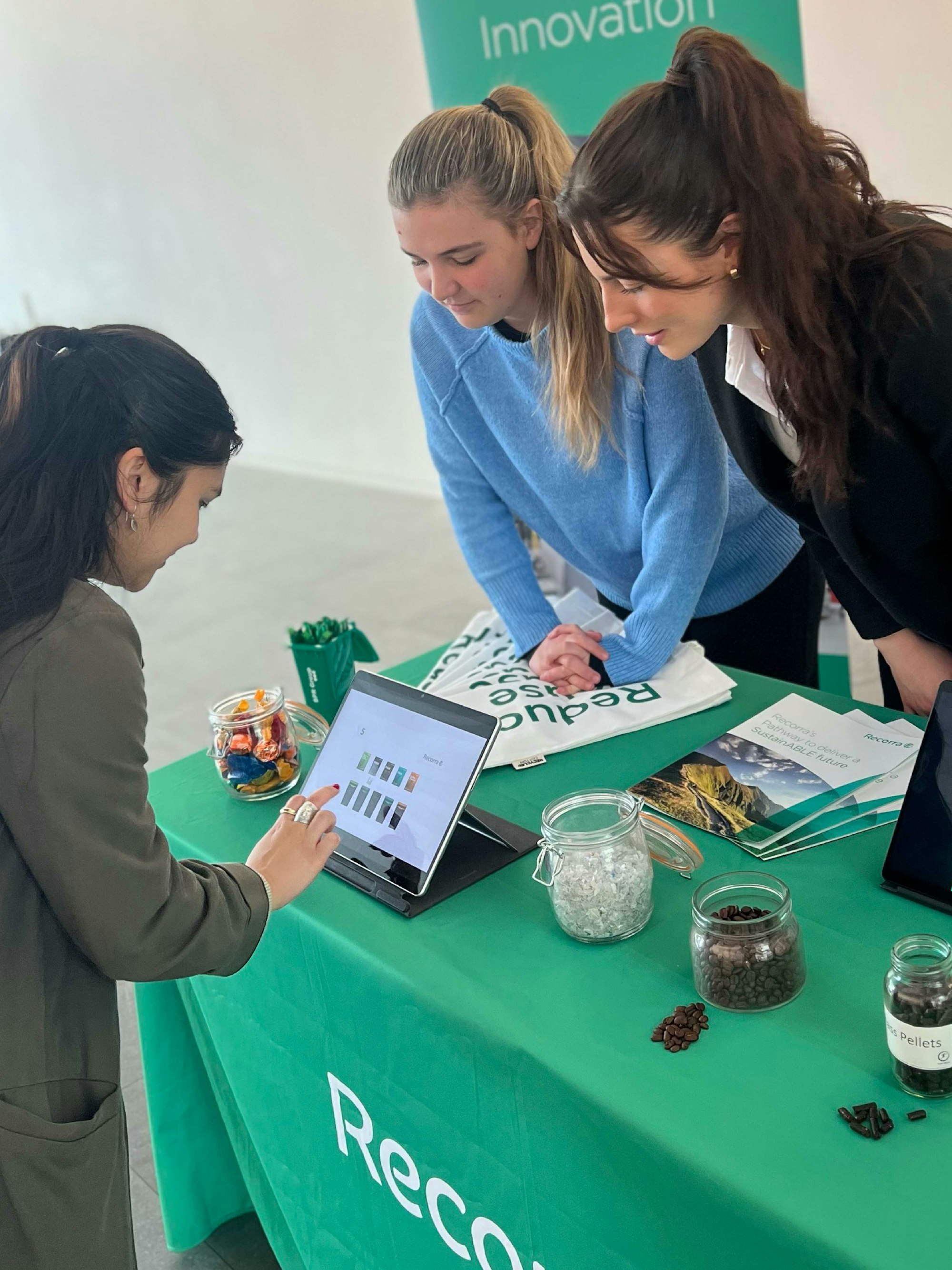Electric Vehicle collections in 2023
About the client
Derwent London is one of London’s leading property investment and development firms. Derwent London owns a portfolio of 5.3 million sq ft (494,300 sq m) of commercial real estate, predominantly in central London. We have worked in partnership with Derwent London since 2014 starting by managing the waste and recycling at 25 of their buildings within their portfolio. Over the years, due to our shared aspiration of developing excellent buildings and achieving Net Zero, Recorra have become a trusted supplier to Derwent London and were selected to service additional buildings.
Success in Numbers

1,257

1 tonne
Coffee cups recycled

8000 tonnes
Food waste diverted

60 tonnes
IT & Electrical waste collected
Our Client’s Challenge
Derwent London needed a service provider to help unlock their potential.
Derwent London wanted to perform better in our approach to waste management and increase our levels of recycling for commercial, environmental and cost efficiency gains.
Derwent London
Services Provided

Our Solution
Derwent London and Recorra implemented a range of initiatives to boost recycling, reduce contamination, and engage tenants, cleaners, and building managers:
- Identified areas where waste was not being segregated correctly and delivered targeted engagement.
- Introduced the Recorra Circular Box to capture soft and flexible plastics, recycling them in the UK into stormboard building materials.
- Created recycling guides for catering and cleaning teams, and launched a colour-coded waste management scheme with new bins and strong visual signage (particularly helpful for non-native English speakers).
- Strengthened engagement through waste audits, tenant floor walks, awareness days, green meetings, review meetings with building managers and tenants, and cleaner training.
- In 2024, focused on 7 key buildings with tailored initiatives such as Lunch & Learns, Waste Composition Analysis, Recycling Improvement Strategies, and Awareness Stands, achieving a 10–15% improvement in recycling rates.
- Created a bespoke A–Z Recycling Guide outlining sustainability aims, relevant waste legislation, and best practice for recycling.
- Partnered with the sustainable procurement team to purchase reusable coffee cups, reducing single-use plastics.
- Transitioned from co-mingled mixed recycling to source separation of materials: food waste, coffee beans, cardboard, glass, paper, coffee cups, and bulky items (fluorescent tubes, batteries, electrical equipment).
- Closed the loop by buying Image paper made from their own recycled wastepaper, reducing carbon emissions, saving trees, and conserving water.
Winning Big

76% Recycling Rate
Average recycling rates rose from 56% to 76%

Best in Sustainability
Recognized by Westminster’s Business Council Award for outstanding achievements.

Five stars at Zero Waste Awards
Awarded the highest recognition, Five Stars at the Zero Waste Awards.

Green Apple Award Winner
Awarded the Green Apple Award in environmental excellence.

What's next
We have also identified paper towels in the general waste stream. We plan to introduce separate paper towel recycling to divert this from general waste. This will also allow Derwent to re-purchase recycled paper towels, integrating circular principles into their day to day operations.
To support Derwent London on their Net Zero Journey, we have been collecting waste using electric vehicles. In 2023, we undertook 1,257 collections using EVs, with this number set to continue to increase as we electrify more of our vehicle fleet.











